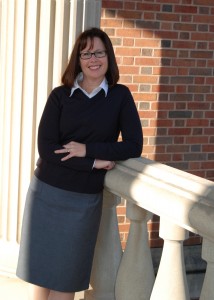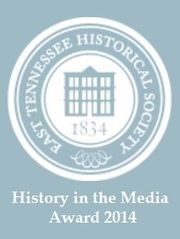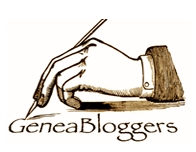If you’ll recall, my paper was entitled “Tell me who I am”: Finding Personal Identity and Connections to History Through Genealogical Research. The thing I am most pleased about with my research was that I got to interview two of my sources. John F. Baker, Jr. is the author of The Washingtons of Wessyngton Plantation. I first met Mr. Baker when he spoke at the Society of Tennessee Archivists 2011 annual conference. This was before I had decided upon the exact direction of my research. I bought his book, read it, and plastered it with sticky notes. When the idea came to me last summer to interview him, he graciously agreed. He was FANTASTIC and I am so lucky. If I hadn’t gotten a scholarship to attend the conference, I never would have met John Baker.
The other interview I conducted was with Brittany A Chapman. Brittany was my mentor for the second week of my June 2012 practicum at the Church History Library in SLC. I asked her for a copy of her Master’s Thesis, which was centered on the life of her great-great-grandmother who was a Mormon Pioneer from England and a suffragette. I used the thesis as one of my sources and also interviewed Brittany. Her feelings about personal identity and connecting to an ancestor’s life, time, and achievements were critical to my paper. If I hadn’t performed my practicum at the CHL, I never would have met Brittany.
Baker, John F., Jr. The Washingtons of Wessyngton Plantation. New York: Atria Books, 2009.
Bishop, Ronald. “In the Grand Scheme of Things: An Exploration of the Meaning of Genealogical Research.” Journal of Popular Culture 41, no. 3 (June 2008): 393-412.
Chapman, Brittany A. “Ruth May Fox: Portrait of a Nineteenth Century Woman in Historical Context.” Master’s thesis, University of Leicester, 2007.
Collingwood, R. G. Essays in the Philosophy of History. Edited by William Debbins. Austin, TX: University of Texas Press, 1965.
Crane, Susan A. “Writing the Individual Back into Collective Memory.” American Historical Review 102, no. 5 (1997): 1372-1385.
Gates, Henry Louis, Jr. In Search of Our Roots: How 19 Extraordinary African Americans Reclaimed their Past. New York: Crown Publishers, 2009.
__________________. Faces of America: How 12 Extraordinary People Discovered their Pasts. New York: New York University Press, 2010.
Hackstaff, Karla B. “Family Genealogy: A Sociological Imagination Reveals Intersectional Relations.” Sociology Compass 4, no. 8 (2010): 658-72.
Hall, Jacquelyn Dowd. “You Must Remember This”: Autobiography as Social Critique,” Journal of American History 85, no. 2 (September 1985): 439-465.
Limerick, Patricia Nelson. The Legacy of Conquest: The Unbroken Past of the American West. New York: W. W. Norton & Co., 1987.
Metcalf, Barbara D. “Historians and Chemical Engineers.” Perspectives on History 48, no. 2 (February 2010). http://www.historians.org/Perspectives/issues/2010/1002/1002pre1.cfm (accessed September 2, 2012).
Mills, C. Wright. The Sociological Imagination. New York: Oxford University Press, 1959.
Parham, Angel Adams. “Race, Memory, and Family History.” Social Identities 14, no. 1 (January 2008): 13-32.
Rosenberg, Victor. “The Power of a Family Archive.” Archival Science 11, nos. 1-2 (March 2011): 77-93.
Muriel C. Spoden Collection, 1730-1999. KC Manuscript Collection 516. Archives of the City of Kingsport, Tennessee.
Saar, Martin. “Genealogy and Subjectivity.” European Journal of Philosophy 10, no. 2 (2002): 231-245.
Siblon, John. “A Mistaken Case of Identity.” History Workshop Journal, no. 52 (Autumn 2001): 253-260.
Spoden, Muriel Millar Clark. An American Ancestry of the Clark-Morton and Tayman-Millar Families. Private collection. 1995.
Taylor, Robert M., and Ralph J. Crandall, ed. Generations and Change: Genealogical Perspectives in Social History. Macon, Georgia: Mercer University Press. 1986.
Yakel, Elizabeth. “Seeking Information, Seeking Connections, Seeking Meaning: Genealogists and Family Historians.” Information Research 10, no. 1 (October 2004). http://informationr.net/ir/10-1/paper205.html
(accessed January 31, 2011).
Yakel, Elizabeth, and Deborah A. Torres. “Genealogists as a ‘Community of Records.’” American Archivist 70, no. 1 (Spring/Summer 2007): 93-113.





2 Responses to Capstone: Graduation